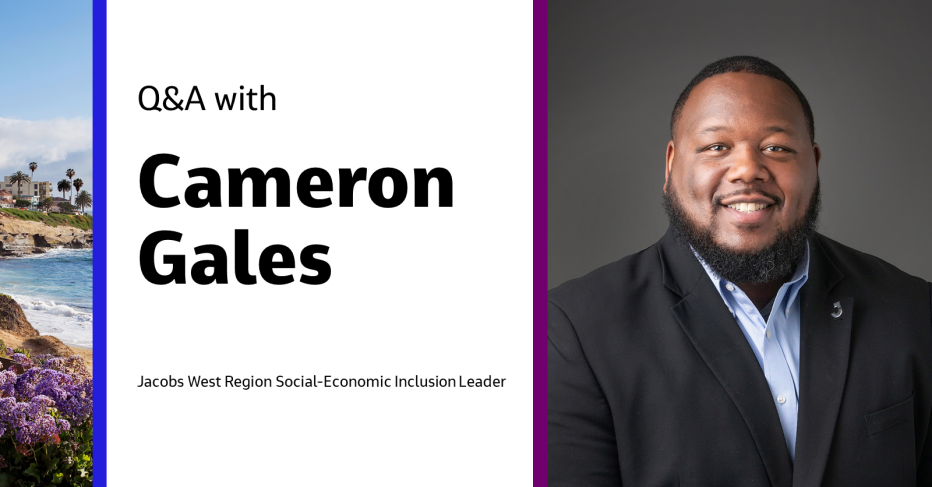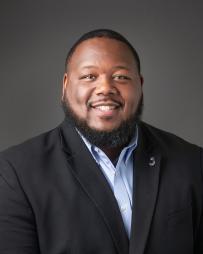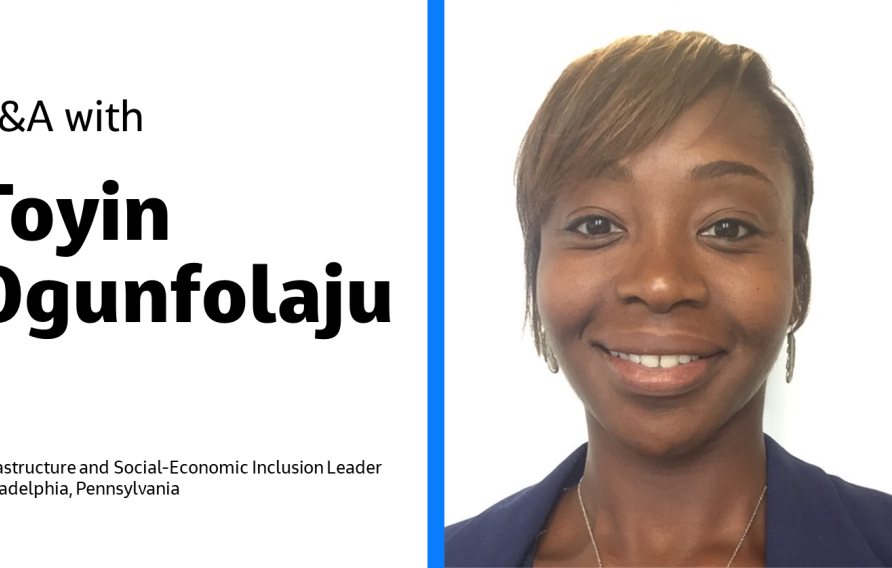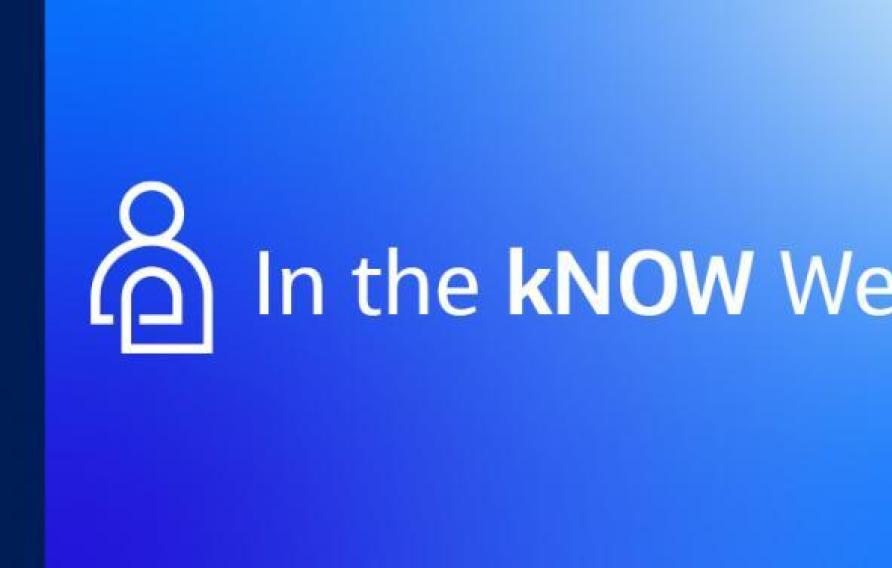
More governments and municipalities are placing diversity, equity and inclusion (DEI) considerations at the center of their infrastructure programs. Investment decisions are being made with holistic community impacts in mind, ensuring that historically underserved and underprivileged communities benefit from equitable infrastructure access and economic opportunities. In the U.S., this conversation is being led at the national level through programs like The White House’s Justice40 Initiative and the Infrastructure Investment and Jobs Act, which prioritize infrastructure investments for disadvantaged communities.
At Jacobs, we live inclusion and through our TogetherBeyond℠ culture we place people at the heart of our business and embrace all perspectives. We’re committed to providing subcontracting opportunities for diverse businesses, including small, disadvantaged, veteran-, women-, and minority-owned enterprises. Drawing on our own experience advancing inclusion, we partner with clients to help align their projects, programs and investments with DEI objectives.
In this Q&A we connect with Jacobs West Region Social-Economic Inclusion Leader Cameron Gales. A former public official and small business owner, Cameron supports Jacobs’ clients in the Western U.S. with their DEI ambitions across three key pillars: student engagement, workforce development and small business inclusion.
Let’s talk with Cameron:
Hi, Cameron. Tell us a bit about your background and your role at Jacobs.
I came to Jacobs from a government background. I previously worked as assistant community relations director for the City of Omaha, Nebraska and I've also run for public office a couple of times.
When I was with the city, one of the biggest things I worked on was the Boys & Men of Color Initiative, which was a program by the National League of Cities that looked to provide opportunities for boys and men of color to excel – and that morphed into the My Brother’s Keeper initiative launched by President Obama. I was also heavily invested in community organizations, neighborhood associations and just the overall people aspect of managing the city – from dealing with traffic cones being in the wrong place and red lights not working to crime intervention and prevention.
I then joined Jacobs in 2016 to support the sewer separation project they were delivering here in Omaha. It was a requirement for that program to have someone to manage small business inclusion, workforce development and student engagement/STEAM activities. During that time the City of Omaha didn’t have a small business inclusion plan, so Jacobs helped draft that plan – which focuses on stimulating economic growth in communities with high levels of poverty – and that later became City ordinance.
I was then put on the Omaha Public School Bond Program – a $410 million capital improvement program involving the construction of five new schools in Omaha that Jacobs was selected to program manage. I oversaw the same diversity and inclusion components but with a tightened requirement for student engagement because we were serving a public school district.
Then, earlier this year, I became West Region Social-Economic Inclusion Leader, which is a role that’s designed to build on the previous DEI work I’d done in Omaha and take that experience to other communities in the Western U.S.
What was your experience managing DEI for the Omaha School Bond Program?
Student engagement was an important part of the DEI requirements of the Omaha School Bond Program and Jacobs was given a lot of flexibility and creative freedom with our approach. I piloted a month-long talent cultivation program in collaboration with the Boys & Girls Club of Omaha, where I introduced about 20 kiddos to the industry as part of a summer job program. They were exposed to architecture, engineering and construction through job site tours, office tours, guest speakers. It was very hands on – we did a lot of activities like concrete cylinder testing and soil sampling with the students. We also partnered with the ACE Mentor Program, which is a national mentoring organization focused on architecture, construction and engineering, and we helped launch the affiliate chapter here in Omaha.
We were also able to put into the contract language with the general contractors and sub-contractors that were building the schools within the bond program that they had to undertake a certain amount of student engagement activities according to their contract value. Those activities ranged from drone education to different aspects of job site safety.
The whole charge when setting this up was that this isn't just a career day where you go and stand in front of the class, talk about what you do, hand out some stickers and leave. This had to be engaging and interactive. I basically prefaced it by saying: ‘Whatever you get excited about every day when you get up and go to work, then that's what we want you to present to the kids.’
The goal was to impact 3,000 students over a two- to three-year period. Even with a COVID year in there, which made things difficult, we've surpassed that and now engaged over 4,000 students.
Also, on the small business inclusion side, we’ve been able to provide upwards of $40 million in small business contracts as part of the bond program. We also established a program called Jacobs Academy which provided small businesses with technical assistance, like how to read and understand contracts.
How are you looking to replicate those successes in other communities?
I want this to be an important part of how we do business at Jacobs. When we start a project, we understand the soil, below the soil and everything we're building on. Why not take that same approach to understanding the communities that our projects are going to impact? If I had a slogan or a motto or a creed, that would be it. We need to understand the community that's going to benefit from our work.
We also need to show that, internally, we align with our clients’ want and need to be more diverse and inclusive. If they're not asking for DEI, then we offer it. And if they're asking for it, then we exceed it. That's my charge in the position that I've taken on. By partnering with Jacobs, clients are not only getting our market-leading technical expertise and solutions – they’re getting student engagement, workforce development and small business subcontracting.
I’m focused on having these conversations in the Western U.S. and my colleague Toyin Ogunfolaju is leading this in the North and on the East Coast. And to be quite frank with you, this isn't a one-person job. In each office there are already champions or people that undertake activities in their community – like volunteering at a Boy & Girls Club or the YMCA. Part of what I do now is highlighting those activities to show that we’re more than just a business – we’re a partner in the community.
“When we start a project, we understand the soil, below the soil and everything we're building on. Why not take that same approach to understanding the communities that our projects are going to impact?”
You’ve recently been engaging with communities on water reuse infrastructure in Southern California. In what ways does DEI benefit those initiatives?
I’m excited about water reuse because it’s a prime opportunity to work within the three pillars of student engagement, workforce development and small business inclusion. Public acceptance is an important requirement for water reuse and my view is that it has to be educated from the youth upward. When we're in a classroom talking to kids about water reuse, they're then going to go home excited and explain to their families, in whatever language they speak, that they learned about recycling and the need for conservation in school today. It’s going to be an educational process because if we don’t define the narrative, then it’ll be defined by someone else who doesn’t necessarily have the best intentions in mind.
There also has to be an understanding that these reuse projects will help to future-proof water supplies for everyone in southern California. We have to gain trust and the only way you gain trust in these situations is to be proactive and talk about it. If we’re at the point where we’re getting ready to break ground on a project and we only then start talking to the communities, then it’s too late. We need education early and often to build that trust in the community. That’s the inclusive part of DEI – including people in the conversation who are going to be impacted by the work.
People would be surprised to know that…
I’ve owned a painting & decorating business for over 10 years. I remember sitting at the dinner table with my wife and saying ‘Hey, I’m going to start a paint business’ and her looking at me and saying ‘You don’t even own a paint brush, or a truck!’
Three years later I was doing contracts worth over $100,000.
The biggest accomplishment in having that paint business wasn't the income though. It was the lives that were impacted by the opportunity. For example, we worked on a project where social housing projects were being torn down and the community was being revitalized by new mixed-use housing. We painted all of the apartments and townhomes and my crew at the time was about 10 guys with ranging backgrounds. They were able to stand at the end of the street with me and talk about how, at one point in their life, they had been part of the decline, whether it was selling drugs or gang violence, and now they were part of fixing it. That was kind of an atonement moment for them and it was so much more than a paint job – it was an opportunity to make amends for how they once were. That’s bigger than a paycheck.
You also ran for public office twice. What motivated that?
The first time I ran for office I was 29 years old. I was the youngest by 20 years in that race. Although I wouldn’t call it a race – it was more of a participation! I've always been active politically because I've always felt like I need to provide a voice for those who can't speak up for themselves. And so, by running for office, even though I haven't won, I still feel like I've done my part of elevating people's voices and some of the platforms that I've pushed forward have been taken up. That kind of sums up my philosophy in life: either love it, learn from it or leave it. You can never really lose.
If you aren’t working, what would we be most likely to find you doing?
You’d find me either coaching some little league sport or at a volleyball game with my kiddos. And if you couldn’t find me there, you’d find me at the gym, working out.
What do you enjoy most about being part of #OurJacobs?
Having access to supportive employee network groups, like Harambee, the Jacobs Women’s Network and the Careers network. Whether it was through mock interviews or facilitating courageous conversations, those groups showed me different things that weren’t even on my radar but ended up being critical to my path forward. There are a lot of people here that really believe in the work I do.
What advice would you give to young professionals?
Find a mentor. Ron Williams (Jacobs People & Places Solutions Americas Senior Vice President and General Manager) was a great mentor to me throughout this process and I wouldn’t have been able to make this happen without having him as a champion. What I love about Jacobs is that regardless of the org chart, if you have a question, you know you can ask anyone. It’s not a closed door where you have to go through a secretary to email this person. It’s genuinely an open door policy. When I approached Ron Williams, he didn’t know me from a can of paint, but it just blossomed from there. Management that’s this down to earth is hard to come by in employment and I’ve always valued that.
About the interviewee

Based out of Omaha, Nebraska, Cameron Gales brings a decade of expertise in government relations and economic inclusion space. In his role as the Socio-Economic Inclusion Leader for the Western U.S., Cameron is partnering with our sales, delivery and operations teams to create best value SEI solutions for our clients and the communities they represent. He has a bachelor’s degree in political science and history from Bethany College in Kansas, and a master’s degree in public administration from Bellevue University.
You might be interested in...
-
 News
NewsQ&A: Talking with Toyin Ogunfolaju, Infrastructure and Social-Economic Inclusion Leader
Toyin Ogunfolaju, Infrastructure and Social-Economic Inclusion Leader at Jacobs, explains what social-economic inclusion (SEI) means, how to understand and engage a community, and why SEI is not a nice-to-have, but integral to Jacobs’ work.
-
 Webinars
WebinarsPotable Reuse: Nature Reuses Water Endlessly, Why Don't We?
Natural- and human-made threats to our global water supply get more complex as populations surge and the demand for water across industries increases. Since there is no new water on Earth, all water goes through a natural cycle and is essentially recycled water before it is treated, tested and returned to homes and businesses as drinking water. In recent decades, forward-thinking organizations have looked to replicate nature more closely by reclaiming the water once viewed as waste and recycling it to augment water supplies.
-

 Page
PageInclusion & Belonging
We put people at the heart of our business. We embrace different perspectives, collaborating to make a positive impact. Through an unparalleled focus on inclusion with a diverse team of visionaries, thinkers and doers, we build trust – in each other and across our company.













































